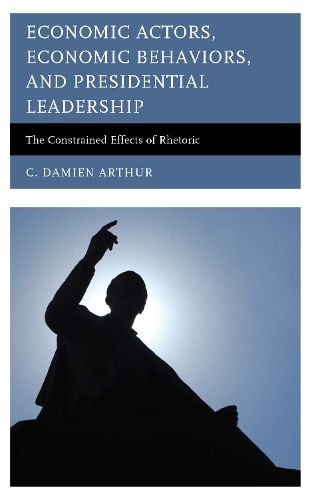Readings Newsletter
Become a Readings Member to make your shopping experience even easier.
Sign in or sign up for free!
You’re not far away from qualifying for FREE standard shipping within Australia
You’ve qualified for FREE standard shipping within Australia
The cart is loading…






There is considerable disagreement about whether the U.S. president has a direct and measurable influence over the economy. The analysis presented in Economic Actors, Economic Behaviors, and Presidential Leadership: The Constrained Effects of Rhetoric suggests that while presidents have increased their rhetoric regarding the economy, they have not had much success in shaping it. Considering this research, Arthur argues that the president’s decision to address the economy so often must stem from a symbolic placation or institutional necessity that is intended to comfort constituencies or somehow garner electoral advocacy from the party’s base. No other viable explanation exists given the lack of results presidents obtain from discussing the economy and their persistent determination to do so. This discrepancy suggests that presidential rhetoric on the economy is, at best, a tool used to appear concerned to everyone and toe the party-line to their base. Arthur presents an overview of economic rhetoric from the presidential office that will be of interest to scholars of the economy and political communication.
$9.00 standard shipping within Australia
FREE standard shipping within Australia for orders over $100.00
Express & International shipping calculated at checkout
There is considerable disagreement about whether the U.S. president has a direct and measurable influence over the economy. The analysis presented in Economic Actors, Economic Behaviors, and Presidential Leadership: The Constrained Effects of Rhetoric suggests that while presidents have increased their rhetoric regarding the economy, they have not had much success in shaping it. Considering this research, Arthur argues that the president’s decision to address the economy so often must stem from a symbolic placation or institutional necessity that is intended to comfort constituencies or somehow garner electoral advocacy from the party’s base. No other viable explanation exists given the lack of results presidents obtain from discussing the economy and their persistent determination to do so. This discrepancy suggests that presidential rhetoric on the economy is, at best, a tool used to appear concerned to everyone and toe the party-line to their base. Arthur presents an overview of economic rhetoric from the presidential office that will be of interest to scholars of the economy and political communication.